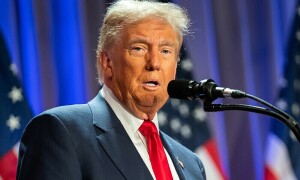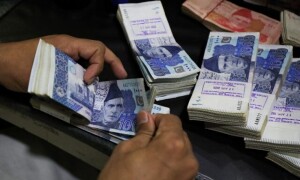Middle East funds favour Saudi before index decisions, UAE sentiment improves
Middle East fund managers remain heavily positive towards Saudi Arabia's equity market before index compilers decide whether to upgrade it, while sentiment has improved towards the United Arab Emirates, a Reuters poll showed on Wednesday.
The monthly Reuters poll of 13 leading regional fund managers, conducted in the past week, found 69 percent expect to raise allocations to Saudi Arabia within a regional equities portfolio over the next three months, and none anticipating a cut in allocations.
The ratios were the same as those in the previous month's poll, which showed the most positive balance towards Saudi Arabia since September 2013. FTSE will decide in March whether to label Saudi Arabia an emerging market, while MSCI will announce its decision in June. In both cases, fund managers generally expect positive decisions.
Actual inclusion in the indexes would only occur months later - in May 2019, in the case of MSCI - but a rotation of funds into Saudi Arabia from other emerging markets, which began late last year, appears to have much further to run. Net foreign fund inflows into Saudi Arabia, through swaps and qualified foreign institutional investors, hit a record $703 million in January. But in a report issued a week ago, Dubai's Arqaam Capital estimated inflows year-to-date were only 6.1 percent of total inflows of passive funds that could be expected if both MSCI and FTSE upgraded the kingdom.
In addition to expectations for index-linked fund flows, several fund managers cited investment opportunities being opened up by Saudi Arabia's economic reforms. Saudi government pressure on companies to hire more local citizens, which involves making it more expensive to hire foreign workers, are hurting the bottom lines of many firms. But Zein Sleiman, associate director at Arqaam Capital, argued that stocks of the biggest companies could benefit.
"As Saudisation ramps up, larger publicly listed companies will benefit through their scalability and gain market share from smaller players who struggle in meeting Saudisation rules." Sleiman identified insurance and healthcare as a top investment theme, with the gap between supply and demand for hospital beds growing. Also, the government's enforcement of motor insurance requirements could boost insurance penetration.
Several managers said the flows into Saudi Arabia were occurring partly at the expense of other markets in the region, particularly the UAE. "We reduced the magnitude of the overweight to the UAE in February in what was primarily a result of bottom-up decisions" related to individual stocks, said William Wells, director at Schroders Middle East.
"We reinvested the funds in Saudi Arabia, taking the market from neutral to overweight." Nevertheless, the latest poll suggested the peak of fund withdrawals from the UAE may have passed, with 23 percent expecting to increase equity allocations there and 31 percent anticipating a reduction.
In the previous poll, 8 percent expected to raise UAE equity allocations and 38 percent to reduce them - the most negative ratio for the UAE since July 2014. Hit by a slumping real estate market, Dubai's stock index sank in February to its lowest levels since late 2016. For some managers, this made stock valuations more attractive. "The UAE continues to be the underperformer in the selected markets, with price and volume movements still disappointing since the start of 2018," said Mohammed Ali Yasin, chief executive of FAB Securities in Abu Dhabi.






















Comments
Comments are closed.